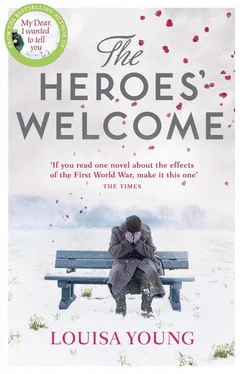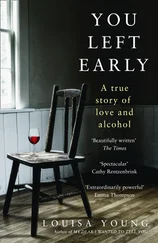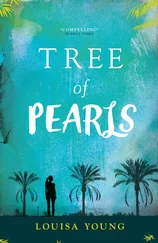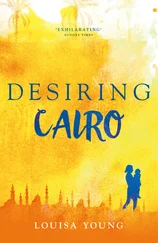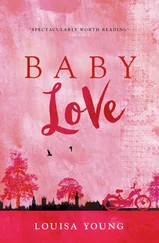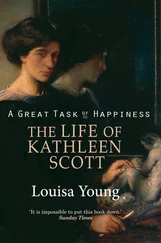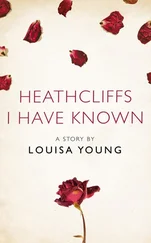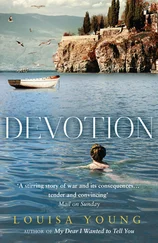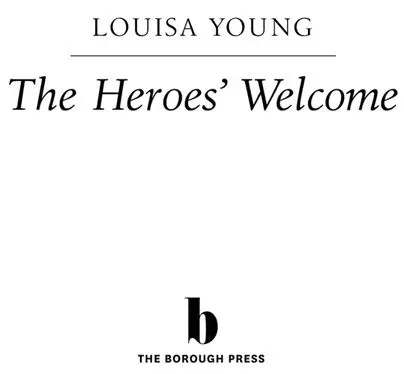
The Borough Press
An imprint of HarperCollins Publishers
1 London Bridge Street
London, SE1 9GF
www.harpercollins.co.uk
First published by The Borough Press 2014
Copyright © Louisa Young 2014
Cover layout design © HarperCollins Publishers Ltd 2015
Cover photographs © Stephen Mulcahey / Arcangel Images (main image); Shutterstock.com(petals, grass and snowdrops).
Excerpts from The Odyssey by Homer, translated by Robert Fagles, translation copyright © 1996 by Robert Fagles. Used by permission of Viking Penguin, a division of Penguin Group (USA) LLC.
Louisa Young asserts the moral right to be identified as the author of this work
A catalogue record for this book is available from the British Library
This novel is entirely a work of fiction. Some characters (or names) and incidents portrayed in it, while based on real historical figures, are the work of the author’s imagination.
All rights reserved under International and Pan-American Copyright Conventions. By payment of the required fees, you have been granted the non-exclusive, non-transferable right to access and read the text of this e-book on-screen. No part of this text may be reproduced, transmitted, down-loaded, decompiled, reverse engineered, or stored in or introduced into any information storage and retrieval system, in any form or by any means, whether electronic or mechanical, now known or hereinafter invented, without the express written permission of HarperCollins e-books
Source ISBN: 9780007361472
Ebook Edition © 2015 ISBN: 9780007361489
Version: 2015-02-24
Praise for The Heroes’ Welcome :
‘Fierce and tender, The Heroes’ Welcome depicts heroism on the grand scale and the importance of the tiniest act of courage’
Observer
‘Young possesses in abundance emotional conviction, pace and imaginative energy, and these qualities will draw readers with her through time and space, as she unfolds the story of the Lockes and Purefoys on their journey through the 20th century’
HELEN DUNMORE, Guardian
‘If you read one novel about the effects of the First World War this year, make it this one. It has brain with its brawn and deserves a hero’s welcome’
The Times
‘Powerful, sometimes shocking, boldly conceived, it fixes on war’s lingering trauma to show how people adapt – or not – and is irradiated by anger and pity’
Sunday Times
‘Energy and charm’
Evening Standard
‘A moving exploration of the war’s toll on a generation … deeply affecting’
Metro
‘A brilliant, passionate, intense examination of what it is to survive a war and to negotiate a peace with a body and mind that have been irrevocably altered’
ELIZABETH BUCHAN
RJL
RIP
‘Joy, warm as the joy that shipwrecked sailors feel when they catch sight of the land … only a few escape, swimming and struggling out of the frothing surf to reach the shore, their bodies crusted with salt but buoyed up with joy as they plant their feet on solid ground again, spared a deadly fate. So joyous now to her the sight of her husband, vivid in her gaze, that her white arms, embracing his neck, would never for a moment let him go …’
from The Odyssey ,
trs Fagles
‘I knew that I was more than the something which had been looking out all that day upon the visible earth and thinking and speaking and tasting friendship. Somewhere – close at hand in that rosy thicket or far off beyond the ribs of sunset – I was gathered up with an immortal company, where I and poet and lover and flower and cloud and star were equals, as all the little leaves were equal ruffling before the gusts, or sleeping and carved out of the silentness. And in that company I learned that I am something which no fortune can touch, whether I be soon to die or long years away. Things will happen which will trample and pierce, but I shall go on, something that is here and there like the wind, something unconquerable, something not to be separated from the dark earth and the light sky, a strong citizen of infinity and eternity. The confidence and ease had become a deep joy; I knew that I could not do without the Infinite, nor the Infinite without me.’
‘The Stile’
from Light and Twilight ,
by Edward Thomas
‘It has taken some ten years for my blood to recover.’
from Goodbye to All That
by Robert Graves
Table of Contents
Cover
Title Page
Copyright
Praise for The Heroes’ Welcome
Dedication
Epigraph
Part One: 1919
Chapter One
Chapter Two
Chapter Three
Chapter Four
Chapter Five
Chapter Six
Chapter Seven
Chapter Eight
Chapter Nine
Chapter Ten
Part Two: 1919
Chapter Eleven
Chapter Twelve
Chapter Thirteen
Chapter Fourteen
Chapter Fifteen
Chapter Sixteen
Chapter Seventeen
Chapter Eighteen
Chapter Nineteen
Chapter Twenty
Chapter Twenty-one
Part Three: 1927
Chapter Twenty-two
Chapter Twenty-three
Chapter Twenty-four
Acknowledgements
About the Author
Also by Louisa Young
About the Publisher
Part One
London, March 1919
Riley Purefoy did not think very much about the war. He didn’t have to. It was part of him. If others mentioned it …
… but then they didn’t: neither the other old soldiers, who had, most of them, realised very quickly that nobody wanted to hear what they might have to say, nor the civilians, who drifted away at the same rate as the soldiers fell silent.
Phrases and scraps, from time to time, slithered back at him. There was a taste in his throat sometimes, unidentified. There was an insistent image of bits of coughed-up gassed lung on the floor of an ambulance, which brought with it the necessity of standing still for a moment. There were moments still, a year and a half after he had stumbled off the battlefield, when the silence confused him as dry land confuses a sailor’s legs. There was Peter Locke’s voice, saying: ‘Then you’re in charge, old boy.’ This last stuck with him, because he knew that however unlikely it seemed, this remained largely true. He was in charge.
Despite his physical damage, Riley was well equipped: a sturdy young man, clear-eyed. So as the months went by, when he did think of war, he thought more of future war, and how to prevent it; of the future children, and how to keep them safe from it, or of the future of his fellow wounded, and how to improve it. He saw people look at him with pity and doubt. He registered the small (or large) involuntary gasps that his scarred face provoked. When a taxi driver drove off because he couldn’t understand what Riley was saying, Riley did his best to conjure sympathy for the man’s embarrassment over natural fucking anger at this continued humiliation.
He was quite aware that not many people thought he’d add up to much, poor fellow. But if he learnt anything from being shot to bits and patched up again, it was this: now is a good time to do what you want.

Riley Purefoy and Nadine Waveney married under a daftly beautiful wave of London blossom cresting over a city that had been at war for so long that it didn’t know what to do with itself. On the wall of the register office a sign read: ‘No Confetti – Defence of the Realm Act’. The flying blossom storm took no notice of that, dizzying eddies of it on the spring breeze, and mad sugar-pink drifts accumulating against the damp Chelsea kerbstones. Nadine, still so skinny she wasn’t having her monthlies, wore Riley’s vest under Julia Locke’s utterly out-of-date wedding dress from before the war, taken in. Riley was in uniform. Peter Locke, Riley’s former CO, tall, courteous and almost sober, was best man. Peter’s cousin Rose was maid of honour, in white gloves, and his son Tom, flaxen-haired symbol of innocence and possibility, was the pageboy. No one else was there. Tom’s mother, Julia, had picked early white lilac and given it to Rose to bring up from Locke Hill, but she didn’t come herself. She was not well enough, or perhaps just embarrassed. It had only been a few months since her own crisis. It had only been a few months since everything.
Читать дальше
